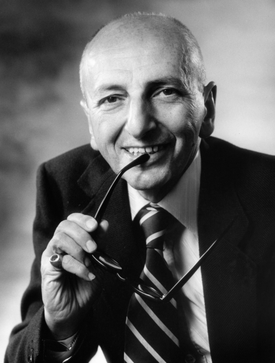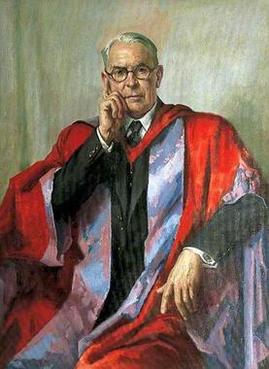
June Kathleen Lloyd, Baroness Lloyd of Highbury was a British paediatrician and, in retirement, a cross bench member of the House of Lords. June Lloyd was a determined advocate for children's health and was instrumental in the establishment of the Royal College of Paediatrics and Child Health. In 1996, the college gained its royal status. She was also known for discovering that the damage caused to patients by the rare metabolic disease oQ-betalipoproteinaemia, that could be avoided by the use of Vitamin E. She was also known for discovering the role of lipid metabolism in health and disease in childhood, which was original and difficult to investigate at that time.

Robert Royston Amos Coombs was a British immunologist, co-discoverer of the Coombs test (1945) used for detecting antibodies in various clinical scenarios, such as Rh disease and blood transfusion.
Derek Raymond Bangham FRCP was a British doctor and research scientist.
Professor Christopher John Dickinson DM, FRCP, ARCO (1927-2015), known as John, was a British physician and clinical researcher.
Peter Orchard Williams was a British physician, who served as Director of the Wellcome Trust, and of the Wellcome Institute for the History of Medicine.
Pamela Davies was a British consultant paediatrician, who specialised in neonatal follow up and infection.
Michael Stewart Rees Hutt was a British pathologist.
John Bernard Lloyd Howell was a British physician.
Owen Lyndon Wade (1921-2008) was a British medical researcher and academic, described by the Royal College of Physicians as "one of the founding fathers of clinical pharmacology and therapeutics in the UK".
John Pemberton FRCP (1912-2010) was a British epidemiologist.

Paul Emanuel Polani, FRCP, HonFRCP(Ire), FRCPCH, FRCOG, HonFRCPath, DCH, FRS, (1914–2006) was an Italian-Austrian geneticist, described by the Royal College of Physicians as "one of the key figures in the development of medical genetics".
Sir John Charles Batten KCVO, FRCP was a British physician, who served as physician to Queen Elizabeth II from 1974 to 1989.

Patrick Loudon Mollison,, was a British haematologist, described as 'the father of transfusion medicine'.
Sir Marcus Henry Richmond is a British biochemist, microbiologist and academic.
Dr Francis Patrick Marsh (1936–2011), known as Frank, was a British nephrologist and academic administrator.
Alan Eglin Heathcote Emery is a British medical geneticist, known for his study of muscular dystrophy.
Professor Geoffrey Warren Hanks DSc(Med), (1946-2013), also known as Geoff, was a British palliative care specialist.
James Spence Medal is a medal that was first struck in 1960, six years after the death of the paediatrician James Calvert Spence and is awarded for outstanding contributions to the advancement or clarification of paediatric knowledge and is the highest honour bestowed by The Royal College of Paediatrics and Child Health.

Sir Alan Aird Moncrieff, was a British paediatrician and professor emeritus at University of London. He was most notable for developing the first premature-baby unit in 1947. It was Moncrief who recognised and developed the concept of daily parental visits to the ward, which he developed while at Great Ormond Street, well before the need for this became recognised, and with his ward sister, published an article on Hospital Visiting for Children in 1949.

Sir Frederick William Andrewes was an English physician, pathologist, and bacteriologist.






